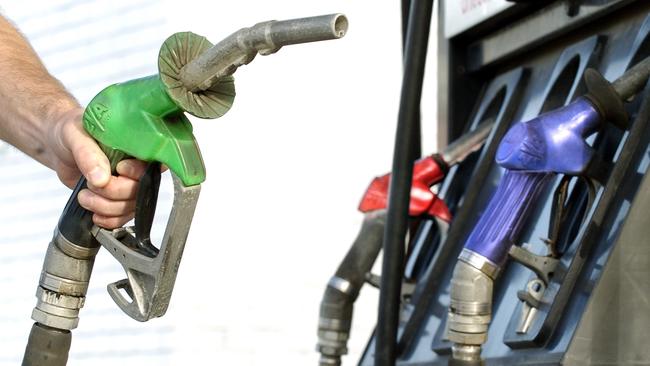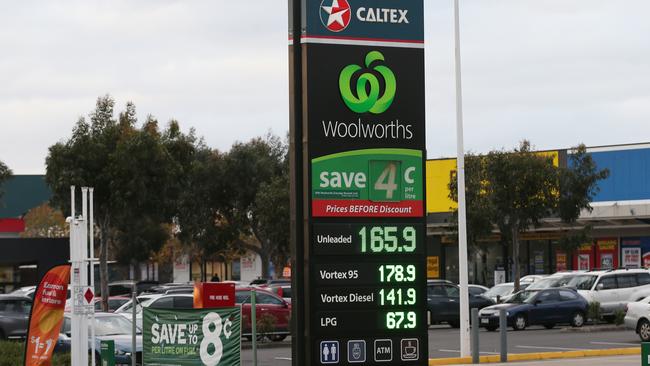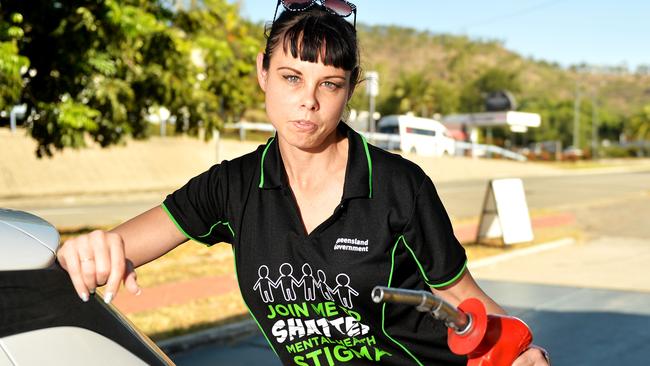RACV expert debunks 10 top petrol myths
Is Tuesday the cheapest day to buy petrol? Are manual cars cheaper to drive than automatics? The RACV separates fact from fiction, debunking these 10 common myths.

VIC News
Don't miss out on the headlines from VIC News. Followed categories will be added to My News.
There are many petrol misconceptions, from the cheapest day to fill up your tank to manual cars needing less fuel to run than automatics. Here the RACV’s fuel expert, vehicle engineering manager Michael Case, debunks 10 of the most common petrol myths.
TUESDAY IS THE CHEAPEST DAY TO FILL UP
Regular cheap Tuesdays for Melbourne motorists are long gone. The peak-to-low petrol price cycle, which can see the pump price suddenly spike by up to 40c a litre before gradually easing, is now unpredictable.
While in the past the price cycle was a week long, since 2013 it has varied from nine to 42 days. Tools such as the RACV’s fuel price monitor can help you find the cheapest petrol near you.
RUNNING ON ALMOST EMPTY CAN RUIN YOUR ENGINE
In a modern car, petrol is pumped from the lowest point in the fuel tank, so whether it is full or empty makes no difference because the petrol is pumped from the same point.
YOU CAN BLOW UP A PETROL STATION BY USING YOUR MOBILE PHONE
According to the RACV’S Mr Case, scientific evidence does not support the hypothesis.

COUNTRY PETROL PRICES ARE ALWAYS HIGHER THAN THE CITY
Regional areas have fewer petrol retailers and competition is often quite low. While this leads to long periods of relatively steady prices, there are times when Melbourne’s price peaks are substantially higher than regional costs. Country drivers heading to Melbourne are advised to check city prices to see if it’s cheaper to fill up at home.
FUEL PRICES ALWAYS HIKE UP BEFORE A LONG WEEKEND
Despite what many motorists think, petrol giants do not deliberately increase prices before long weekends. It depends on the timing of the petrol price cycle.
Retailers discount prices to attract customers in a competitive market but as those prices approach wholesale costs, they then raise prices before starting the discounting phase again. Drivers may have noticed a price spike just before the July school holidays and about a week before the Queen’s Birthday long weekend, however there was no such price rise at Easter or last Christmas.
PREMIUM PETROL IS BETTER FOR YOUR CAR
Some new vehicles require the premium 95 or 98 RON unleaded petrol, but older vehicles may not get any benefit from this pricier fuel. Some newer cars may get increased efficiency and performance but not likely enough to compensate for the higher price.

RETAILERS NEVER SELL BELOW THE WHOLESALE PETROL PRICE
Petrol stations do sell below wholesale prices to match or beat their competition. Often the super-low price lasts only a short time. Retailers can offset their loss through non-fuel service station store sales, or by attracting shoppers to spend a certain amount in partner supermarkets.
MOTORISTS CAN’T INFLUENCE PETROL PRICES
Shopping around can put pressure on retailers who want to keep customers. Competition triggers the slow discounting cycle where retailers reduce the price by one to two cents a day until they get to or below the wholesale price and the price spikes upward.
MORE: VICTORIAN PETROL PRICES ‘ALL OVER THE PLACE’
OBSCURE ROAD RULES DRIVERS KEEP BREAKING
MANUAL CARS ARE MORE ECONOMICAL THAN AUTOMATICS
When automatic transmissions were quite basic they typically increased fuel consumption and reduced performance. But modern automatic transmissions can match or better a manual’s economics.
E10 FUEL IS CHEAPEST
RACV vehicle testers drove from Melbourne to Albury and back and confirmed motorists get less mileage using E10. According to Mr Case, E10 has lower energy content and increases fuel consumption by about 3 per cent. So unless you are paying 3 per cent less for E10 than for unleaded, it’s a false economy.


